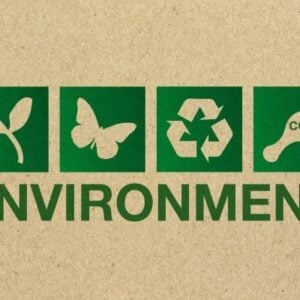The 30-day public consultation on South Africa’s draft second Nationally Determined Contribution (NDC) closes on 29 August, prompting civil society organisations to call for substantial revisions to enhance ambition, coherence, and accountability in the country’s climate commitments. Groups affiliated with the Climate Justice Coalition (CJC) and the Energy Governance South Africa Network (EG-SA), representing social justice NGOs, youth, faith-based, and grassroots movements, argue that the current draft fails to adequately address the climate crisis or meet South Africa’s constitutional and international obligations.
NDCs, submitted every five years under the Paris Agreement, are central to guiding climate policy and development planning. The draft recommendations from the Presidential Climate Commission (PCC) emphasize the need for the NDC to increase ambition and implementation readiness, including time-bound, sector-specific targets. However, the emissions targets proposed by the Department of Forestry, Fisheries and Environment (DFFE) are widely considered insufficient given South Africa’s historical emissions and its current ranking as the 13th highest emitter globally. Adaptation interventions in the draft remain generic and unquantified, lacking clear provisions to support vulnerable populations, and there is minimal attention to loss and damage or robust mechanisms for monitoring, evaluation, and financial transparency.
Civil society organisations stress that the NDC must align with South Africa’s Framework for a Just Transition and its 2050 net-zero emissions commitment. They dispute claims that the current draft represents the country’s “highest possible ambition” in the context of equity, warning that misalignment leaves South Africa exposed to legal challenges. Recent court cases, such as Deadly Air and #CancelCoal, affirm the government’s constitutional duty to protect the right to a healthy environment, while international rulings, including advisory opinions from the International Court of Justice and emerging decisions from the African Court on Human and Peoples’ Rights, highlight the global and regional expectations for robust climate action.
Civil society recommendations include establishing more ambitious, sector-specific mitigation targets that reflect South Africa’s national responsibility and capabilities, clearly defining adaptation measures to protect marginalized communities, creating dedicated mechanisms for loss and damage with transparency and accountability, and implementing accessible monitoring and evaluation systems. These steps aim to ensure that South Africa’s NDC not only addresses climate risks but also supports coherent development planning and policy harmonisation ahead of COP30.
Gabriel Klaasen of the CJC emphasized that, despite delays and a rushed public participation process, the consultation must remain inclusive and informed by relevant research. He added that the NDC must be grounded in justice, science, and the lived realities of South Africans to serve the needs of people, the planet, and future generations.







